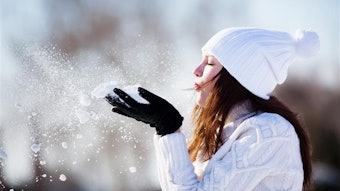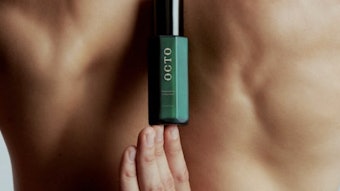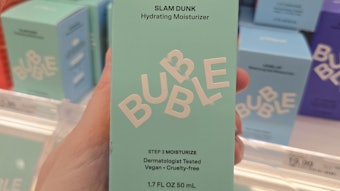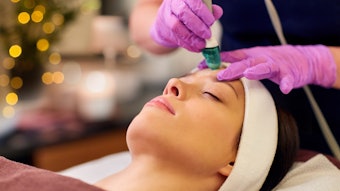Impairments to the skin barrier and skin dryness are believed to trigger eczema in infancy. This may be due to genetic predisposition and environmental factors; the latter of which was the focus of a new study by King’s College London.
Published in the Journal of Allergy and Clinical Immunology, the study looked for connections between water hardness and chlorine concentrations in relation to skin barrier damage and eczema occurrences in infancy. UK-based families of 1,300 three-month old infants took part in the study, which collected data on calcium carbonate and chlorine levels in their household water supplies.
The infants were examined for atopic dermatitis (eczema) and their skin’s barrier function was assessed by transepidermal water loss (TEWL). Infants also were screened for mutations in the filaggrin (FLG) gene, which codes for a key skin barrier protein.
Even independent of chlorine content, hard water, i.e., that containing higher levels of calcium carbonate, was found to increase the risk of eczema in infants by 87%. The risk tended to be higher in children with mutations in the FLG skin barrier gene, although not statistically significant.
Carsten Flohr, Ph.D., lead author from St. John’s Institute of Dermatology at King’s College London and Guy’s and St. Thomas’ NHS Foundation Trust noted, "It’s not yet clear whether calcium carbonate has a direct detrimental effect on the skin barrier, or whether other environmental factors directly related to water hardness, such as the water’s pH, may be responsible." He added that interactions between water contents and skin's microflora may also play a role.










